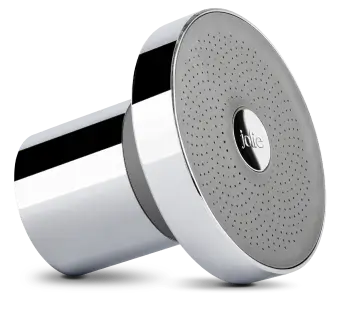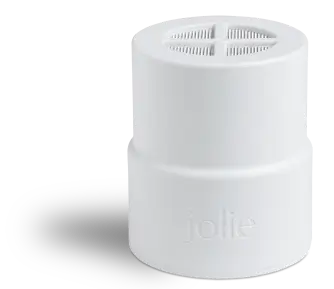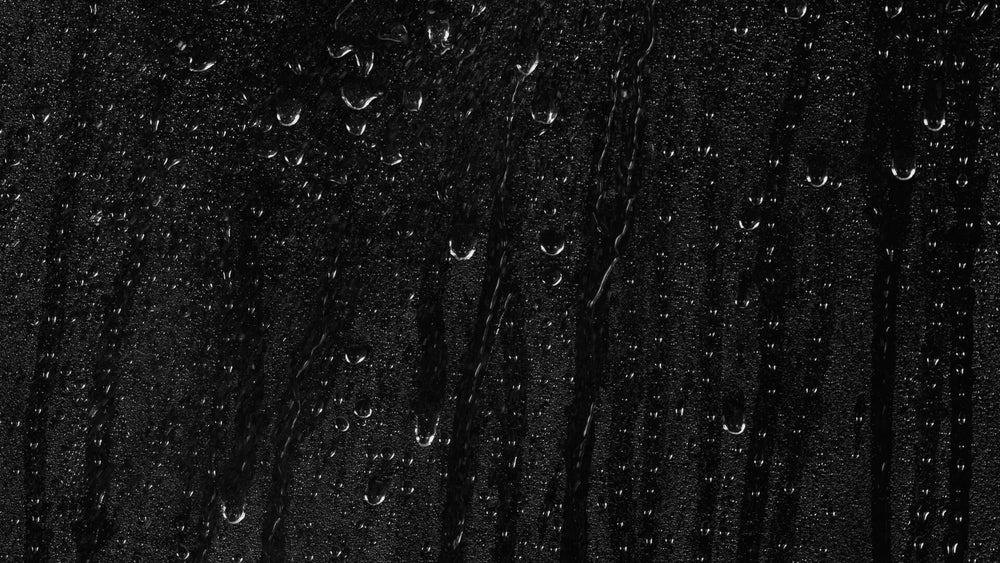window.productSubcriptionBundle = {"id":7285536194717,"title":"The Jolie Filtered Showerhead (With Subscription)","handle":"test-dev-the-filtered-showerhead","description":"\u003cmeta charset=\"utf-8\"\u003e\n\u003cdiv data-mce-fragment=\"1\" class=\"font-body font-light text-sm lg:text-base text-black mt-4 max-w-sm mx-auto\"\u003eThe most fundamental part of your daily routine, The Jolie Filtered Showerhead removes chlorine, heavy metals and other chemicals from your water for better skin, hair, and wellbeing.\u003c\/div\u003e\n\u003cdiv data-mce-fragment=\"1\" class=\"flex flex-col justify-center items-center mt-8\"\u003e\n\u003cdiv data-mce-fragment=\"1\" class=\"flex items-center\"\u003e\u003c\/div\u003e\n\u003c\/div\u003e","published_at":"2022-02-17T07:02:15-05:00","created_at":"2022-02-17T07:02:15-05:00","vendor":"Jolie","type":"Health \u0026 Beauty","tags":["TryNowAutomated","Verishop"],"price":12200,"price_min":12200,"price_max":12200,"available":true,"price_varies":false,"compare_at_price":15200,"compare_at_price_min":15200,"compare_at_price_max":16500,"compare_at_price_varies":true,"variants":[{"id":41980490547357,"title":"Brushed Steel","option1":"Brushed Steel","option2":null,"option3":null,"sku":"SHWR-BS-850036402084-S","requires_shipping":true,"taxable":true,"featured_image":{"id":40028927983909,"product_id":7285536194717,"position":2,"created_at":"2022-12-01T15:06:19-05:00","updated_at":"2025-06-25T06:41:01-04:00","alt":null,"width":1080,"height":1080,"src":"\/\/jolieskinco.com\/cdn\/shop\/products\/Steel_Taupe.png?v=1750848061","variant_ids":[41980490547357]},"available":true,"name":"The Jolie Filtered Showerhead (With Subscription) - Brushed Steel","public_title":"Brushed Steel","options":["Brushed Steel"],"price":12200,"weight":1588,"compare_at_price":15200,"inventory_management":"shopify","barcode":"","featured_media":{"alt":null,"id":32355953901861,"position":2,"preview_image":{"aspect_ratio":1.0,"height":1080,"width":1080,"src":"\/\/jolieskinco.com\/cdn\/shop\/products\/Steel_Taupe.png?v=1750848061"}},"requires_selling_plan":false,"selling_plan_allocations":[{"price_adjustments":[{"position":1,"price":15200},{"position":2,"price":3500}],"price":15200,"compare_at_price":12200,"per_delivery_price":15200,"selling_plan_id":811663517,"selling_plan_group_id":"85bf976274e79b5cb3c67862bffb70a7c0e566dd"}],"quantity_rule":{"min":1,"max":null,"increment":1}},{"id":41980490580125,"title":"Modern Chrome","option1":"Modern Chrome","option2":null,"option3":null,"sku":"SHWR-MC-850036402091-S","requires_shipping":true,"taxable":true,"featured_image":{"id":40028920054053,"product_id":7285536194717,"position":1,"created_at":"2022-12-01T15:05:01-05:00","updated_at":"2024-02-05T16:47:55-05:00","alt":null,"width":1080,"height":1080,"src":"\/\/jolieskinco.com\/cdn\/shop\/products\/SideAngle-Chrome_Grey.png?v=1707169675","variant_ids":[41980490580125]},"available":true,"name":"The Jolie Filtered Showerhead (With Subscription) - Modern Chrome","public_title":"Modern Chrome","options":["Modern Chrome"],"price":12200,"weight":1588,"compare_at_price":16500,"inventory_management":"shopify","barcode":"850036402091","featured_media":{"alt":null,"id":32355945578789,"position":1,"preview_image":{"aspect_ratio":1.0,"height":1080,"width":1080,"src":"\/\/jolieskinco.com\/cdn\/shop\/products\/SideAngle-Chrome_Grey.png?v=1707169675"}},"requires_selling_plan":false,"selling_plan_allocations":[{"price_adjustments":[{"position":1,"price":15200},{"position":2,"price":3500}],"price":15200,"compare_at_price":12200,"per_delivery_price":15200,"selling_plan_id":811663517,"selling_plan_group_id":"85bf976274e79b5cb3c67862bffb70a7c0e566dd"}],"quantity_rule":{"min":1,"max":null,"increment":1}},{"id":41980490678429,"title":"Jet Black","option1":"Jet Black","option2":null,"option3":null,"sku":"SHWR-JB-850036402077-S","requires_shipping":true,"taxable":true,"featured_image":{"id":32105386967197,"product_id":7285536194717,"position":4,"created_at":"2022-02-17T07:02:32-05:00","updated_at":"2025-06-25T06:41:01-04:00","alt":null,"width":3648,"height":3648,"src":"\/\/jolieskinco.com\/cdn\/shop\/products\/Jolie_Filtered_Showerhead_-_Side-6_da94b1ee-8d42-4ccf-aea8-f58067b053af.jpg?v=1750848061","variant_ids":[41980490678429]},"available":true,"name":"The Jolie Filtered Showerhead (With Subscription) - Jet Black","public_title":"Jet Black","options":["Jet Black"],"price":12200,"weight":1588,"compare_at_price":16500,"inventory_management":"shopify","barcode":"","featured_media":{"alt":null,"id":24413041459357,"position":4,"preview_image":{"aspect_ratio":1.0,"height":3648,"width":3648,"src":"\/\/jolieskinco.com\/cdn\/shop\/products\/Jolie_Filtered_Showerhead_-_Side-6_da94b1ee-8d42-4ccf-aea8-f58067b053af.jpg?v=1750848061"}},"requires_selling_plan":false,"selling_plan_allocations":[{"price_adjustments":[{"position":1,"price":15200},{"position":2,"price":3500}],"price":15200,"compare_at_price":12200,"per_delivery_price":15200,"selling_plan_id":811663517,"selling_plan_group_id":"85bf976274e79b5cb3c67862bffb70a7c0e566dd"}],"quantity_rule":{"min":1,"max":null,"increment":1}},{"id":45569197474085,"title":"Brushed Gold","option1":"Brushed Gold","option2":null,"option3":null,"sku":"SHWR-BG-850036402206","requires_shipping":true,"taxable":true,"featured_image":{"id":46164855554341,"product_id":7285536194717,"position":3,"created_at":"2024-05-16T09:57:47-04:00","updated_at":"2025-06-25T06:41:01-04:00","alt":null,"width":3360,"height":2241,"src":"\/\/jolieskinco.com\/cdn\/shop\/files\/BrushedGold.png?v=1750848061","variant_ids":[45569197474085]},"available":true,"name":"The Jolie Filtered Showerhead (With Subscription) - Brushed Gold","public_title":"Brushed Gold","options":["Brushed Gold"],"price":12200,"weight":1588,"compare_at_price":16500,"inventory_management":"shopify","barcode":"850036402206","featured_media":{"alt":null,"id":38800978084133,"position":3,"preview_image":{"aspect_ratio":1.499,"height":2241,"width":3360,"src":"\/\/jolieskinco.com\/cdn\/shop\/files\/BrushedGold.png?v=1750848061"}},"requires_selling_plan":false,"selling_plan_allocations":[{"price_adjustments":[{"position":1,"price":15200},{"position":2,"price":3500}],"price":15200,"compare_at_price":12200,"per_delivery_price":15200,"selling_plan_id":811663517,"selling_plan_group_id":"85bf976274e79b5cb3c67862bffb70a7c0e566dd"}],"quantity_rule":{"min":1,"max":null,"increment":1}},{"id":47893025128741,"title":"Vibrant Red","option1":"Vibrant Red","option2":null,"option3":null,"sku":"SHWR-VR-850036402220-S","requires_shipping":true,"taxable":true,"featured_image":{"id":32105386868893,"product_id":7285536194717,"position":5,"created_at":"2022-02-17T07:02:32-05:00","updated_at":"2025-06-25T06:41:01-04:00","alt":null,"width":3648,"height":3648,"src":"\/\/jolieskinco.com\/cdn\/shop\/products\/Jolie_Filtered_Showerhead_-_Side-3_c5ad9762-ec00-4b42-86b3-ca599db1fb47.jpg?v=1750848061","variant_ids":[47893025128741]},"available":true,"name":"The Jolie Filtered Showerhead (With Subscription) - Vibrant Red","public_title":"Vibrant Red","options":["Vibrant Red"],"price":12200,"weight":1588,"compare_at_price":16500,"inventory_management":"shopify","barcode":"850036402220","featured_media":{"alt":null,"id":24413041361053,"position":5,"preview_image":{"aspect_ratio":1.0,"height":3648,"width":3648,"src":"\/\/jolieskinco.com\/cdn\/shop\/products\/Jolie_Filtered_Showerhead_-_Side-3_c5ad9762-ec00-4b42-86b3-ca599db1fb47.jpg?v=1750848061"}},"requires_selling_plan":false,"selling_plan_allocations":[{"price_adjustments":[{"position":1,"price":15200},{"position":2,"price":3500}],"price":15200,"compare_at_price":12200,"per_delivery_price":15200,"selling_plan_id":811663517,"selling_plan_group_id":"85bf976274e79b5cb3c67862bffb70a7c0e566dd"}],"quantity_rule":{"min":1,"max":null,"increment":1}}],"images":["\/\/jolieskinco.com\/cdn\/shop\/products\/SideAngle-Chrome_Grey.png?v=1707169675","\/\/jolieskinco.com\/cdn\/shop\/products\/Steel_Taupe.png?v=1750848061","\/\/jolieskinco.com\/cdn\/shop\/files\/BrushedGold.png?v=1750848061","\/\/jolieskinco.com\/cdn\/shop\/products\/Jolie_Filtered_Showerhead_-_Side-6_da94b1ee-8d42-4ccf-aea8-f58067b053af.jpg?v=1750848061","\/\/jolieskinco.com\/cdn\/shop\/products\/Jolie_Filtered_Showerhead_-_Side-3_c5ad9762-ec00-4b42-86b3-ca599db1fb47.jpg?v=1750848061","\/\/jolieskinco.com\/cdn\/shop\/files\/Guava_Red.webp?v=1750848061"],"featured_image":"\/\/jolieskinco.com\/cdn\/shop\/products\/SideAngle-Chrome_Grey.png?v=1707169675","options":["Color"],"media":[{"alt":null,"id":32355945578789,"position":1,"preview_image":{"aspect_ratio":1.0,"height":1080,"width":1080,"src":"\/\/jolieskinco.com\/cdn\/shop\/products\/SideAngle-Chrome_Grey.png?v=1707169675"},"aspect_ratio":1.0,"height":1080,"media_type":"image","src":"\/\/jolieskinco.com\/cdn\/shop\/products\/SideAngle-Chrome_Grey.png?v=1707169675","width":1080},{"alt":null,"id":32355953901861,"position":2,"preview_image":{"aspect_ratio":1.0,"height":1080,"width":1080,"src":"\/\/jolieskinco.com\/cdn\/shop\/products\/Steel_Taupe.png?v=1750848061"},"aspect_ratio":1.0,"height":1080,"media_type":"image","src":"\/\/jolieskinco.com\/cdn\/shop\/products\/Steel_Taupe.png?v=1750848061","width":1080},{"alt":null,"id":38800978084133,"position":3,"preview_image":{"aspect_ratio":1.499,"height":2241,"width":3360,"src":"\/\/jolieskinco.com\/cdn\/shop\/files\/BrushedGold.png?v=1750848061"},"aspect_ratio":1.499,"height":2241,"media_type":"image","src":"\/\/jolieskinco.com\/cdn\/shop\/files\/BrushedGold.png?v=1750848061","width":3360},{"alt":null,"id":24413041459357,"position":4,"preview_image":{"aspect_ratio":1.0,"height":3648,"width":3648,"src":"\/\/jolieskinco.com\/cdn\/shop\/products\/Jolie_Filtered_Showerhead_-_Side-6_da94b1ee-8d42-4ccf-aea8-f58067b053af.jpg?v=1750848061"},"aspect_ratio":1.0,"height":3648,"media_type":"image","src":"\/\/jolieskinco.com\/cdn\/shop\/products\/Jolie_Filtered_Showerhead_-_Side-6_da94b1ee-8d42-4ccf-aea8-f58067b053af.jpg?v=1750848061","width":3648},{"alt":null,"id":24413041361053,"position":5,"preview_image":{"aspect_ratio":1.0,"height":3648,"width":3648,"src":"\/\/jolieskinco.com\/cdn\/shop\/products\/Jolie_Filtered_Showerhead_-_Side-3_c5ad9762-ec00-4b42-86b3-ca599db1fb47.jpg?v=1750848061"},"aspect_ratio":1.0,"height":3648,"media_type":"image","src":"\/\/jolieskinco.com\/cdn\/shop\/products\/Jolie_Filtered_Showerhead_-_Side-3_c5ad9762-ec00-4b42-86b3-ca599db1fb47.jpg?v=1750848061","width":3648},{"alt":null,"id":39989746991397,"position":6,"preview_image":{"aspect_ratio":1.499,"height":2241,"width":3360,"src":"\/\/jolieskinco.com\/cdn\/shop\/files\/Guava_Red.webp?v=1750848061"},"aspect_ratio":1.499,"height":2241,"media_type":"image","src":"\/\/jolieskinco.com\/cdn\/shop\/files\/Guava_Red.webp?v=1750848061","width":3360}],"requires_selling_plan":false,"selling_plan_groups":[{"id":"85bf976274e79b5cb3c67862bffb70a7c0e566dd","name":"The Jolie Filtered Showerhead (with subscription)","options":[{"name":"Filters delivered \u0026 billed every 3 months, starting 3 months after receiving your Jolie","position":1,"values":["The Filtered Showerhead (with subscription)"]}],"selling_plans":[{"id":811663517,"name":"Filters delivered \u0026 billed every 3 months, starting 3 months after receiving your Jolie","description":"","options":[{"name":"Filters delivered \u0026 billed every 3 months, starting 3 months after receiving your Jolie","position":1,"value":"The Filtered Showerhead (with subscription)"}],"recurring_deliveries":true,"price_adjustments":[{"order_count":1,"position":1,"value_type":"price","value":15200},{"order_count":null,"position":2,"value_type":"price","value":3500}],"checkout_charge":{"value_type":"percentage","value":100}}],"app_id":"4836205"}],"content":"\u003cmeta charset=\"utf-8\"\u003e\n\u003cdiv data-mce-fragment=\"1\" class=\"font-body font-light text-sm lg:text-base text-black mt-4 max-w-sm mx-auto\"\u003eThe most fundamental part of your daily routine, The Jolie Filtered Showerhead removes chlorine, heavy metals and other chemicals from your water for better skin, hair, and wellbeing.\u003c\/div\u003e\n\u003cdiv data-mce-fragment=\"1\" class=\"flex flex-col justify-center items-center mt-8\"\u003e\n\u003cdiv data-mce-fragment=\"1\" class=\"flex items-center\"\u003e\u003c\/div\u003e\n\u003c\/div\u003e"};
window.productSubcriptionBundleWithWrapper = {"id":10273261158693,"title":"The Jolie Filtered Showerhead (With Subscription)","handle":"the-jolie-filtered-showerhead-with-subscription","description":"\u003cmeta charset=\"utf-8\"\u003e\n\u003cdiv data-mce-fragment=\"1\" class=\"font-body font-light text-sm lg:text-base text-black mt-4 max-w-sm mx-auto\"\u003eThe most fundamental part of your daily routine, The Jolie Filtered Showerhead removes chlorine, heavy metals and other chemicals from your water for better skin, hair, and wellbeing.\u003c\/div\u003e\n\u003cdiv data-mce-fragment=\"1\" class=\"flex flex-col justify-center items-center mt-8\"\u003e\n\u003cdiv data-mce-fragment=\"1\" class=\"flex items-center\"\u003e\u003c\/div\u003e\n\u003c\/div\u003e","published_at":"2025-11-27T17:14:06-05:00","created_at":"2025-11-27T15:51:08-05:00","vendor":"Jolie","type":"Health \u0026 Beauty","tags":["TryNowAutomated","Verishop"],"price":12200,"price_min":12200,"price_max":12200,"available":true,"price_varies":false,"compare_at_price":15200,"compare_at_price_min":15200,"compare_at_price_max":16500,"compare_at_price_varies":true,"variants":[{"id":51661581484325,"title":"Brushed Steel","option1":"Brushed Steel","option2":null,"option3":null,"sku":"SHWR-BS-850036402084-S-GIFT","requires_shipping":true,"taxable":true,"featured_image":{"id":40028927983909,"product_id":10273261158693,"position":2,"created_at":"2022-12-01T15:06:19-05:00","updated_at":"2025-06-25T06:41:01-04:00","alt":null,"width":1080,"height":1080,"src":"\/\/jolieskinco.com\/cdn\/shop\/products\/Steel_Taupe.png?v=1750848061","variant_ids":[51661581484325]},"available":true,"name":"The Jolie Filtered Showerhead (With Subscription) - Brushed Steel","public_title":"Brushed Steel","options":["Brushed Steel"],"price":12200,"weight":1588,"compare_at_price":15200,"inventory_management":"shopify","barcode":"","featured_media":{"alt":null,"id":32355953901861,"position":2,"preview_image":{"aspect_ratio":1.0,"height":1080,"width":1080,"src":"\/\/jolieskinco.com\/cdn\/shop\/products\/Steel_Taupe.png?v=1750848061"}},"requires_selling_plan":false,"selling_plan_allocations":[],"quantity_rule":{"min":1,"max":null,"increment":1}},{"id":51661581517093,"title":"Modern Chrome","option1":"Modern Chrome","option2":null,"option3":null,"sku":"SHWR-MC-850036402091-S-GIFT","requires_shipping":true,"taxable":true,"featured_image":{"id":40028920054053,"product_id":10273261158693,"position":1,"created_at":"2022-12-01T15:05:01-05:00","updated_at":"2024-02-05T16:47:55-05:00","alt":null,"width":1080,"height":1080,"src":"\/\/jolieskinco.com\/cdn\/shop\/products\/SideAngle-Chrome_Grey.png?v=1707169675","variant_ids":[51661581517093]},"available":true,"name":"The Jolie Filtered Showerhead (With Subscription) - Modern Chrome","public_title":"Modern Chrome","options":["Modern Chrome"],"price":12200,"weight":1588,"compare_at_price":16500,"inventory_management":"shopify","barcode":"850036402091","featured_media":{"alt":null,"id":32355945578789,"position":1,"preview_image":{"aspect_ratio":1.0,"height":1080,"width":1080,"src":"\/\/jolieskinco.com\/cdn\/shop\/products\/SideAngle-Chrome_Grey.png?v=1707169675"}},"requires_selling_plan":false,"selling_plan_allocations":[],"quantity_rule":{"min":1,"max":null,"increment":1}},{"id":51661581549861,"title":"Jet Black","option1":"Jet Black","option2":null,"option3":null,"sku":"SHWR-JB-850036402077-S-GIFT","requires_shipping":true,"taxable":true,"featured_image":{"id":32105386967197,"product_id":10273261158693,"position":4,"created_at":"2022-02-17T07:02:32-05:00","updated_at":"2025-06-25T06:41:01-04:00","alt":null,"width":3648,"height":3648,"src":"\/\/jolieskinco.com\/cdn\/shop\/products\/Jolie_Filtered_Showerhead_-_Side-6_da94b1ee-8d42-4ccf-aea8-f58067b053af.jpg?v=1750848061","variant_ids":[51661581549861]},"available":true,"name":"The Jolie Filtered Showerhead (With Subscription) - Jet Black","public_title":"Jet Black","options":["Jet Black"],"price":12200,"weight":1588,"compare_at_price":16500,"inventory_management":"shopify","barcode":"","featured_media":{"alt":null,"id":24413041459357,"position":4,"preview_image":{"aspect_ratio":1.0,"height":3648,"width":3648,"src":"\/\/jolieskinco.com\/cdn\/shop\/products\/Jolie_Filtered_Showerhead_-_Side-6_da94b1ee-8d42-4ccf-aea8-f58067b053af.jpg?v=1750848061"}},"requires_selling_plan":false,"selling_plan_allocations":[],"quantity_rule":{"min":1,"max":null,"increment":1}},{"id":51661581582629,"title":"Brushed Gold","option1":"Brushed Gold","option2":null,"option3":null,"sku":"SHWR-BG-850036402206-GIFT","requires_shipping":true,"taxable":true,"featured_image":{"id":46164855554341,"product_id":10273261158693,"position":3,"created_at":"2024-05-16T09:57:47-04:00","updated_at":"2025-06-25T06:41:01-04:00","alt":null,"width":3360,"height":2241,"src":"\/\/jolieskinco.com\/cdn\/shop\/files\/BrushedGold.png?v=1750848061","variant_ids":[51661581582629]},"available":true,"name":"The Jolie Filtered Showerhead (With Subscription) - Brushed Gold","public_title":"Brushed Gold","options":["Brushed Gold"],"price":12200,"weight":1588,"compare_at_price":16500,"inventory_management":"shopify","barcode":"850036402206","featured_media":{"alt":null,"id":38800978084133,"position":3,"preview_image":{"aspect_ratio":1.499,"height":2241,"width":3360,"src":"\/\/jolieskinco.com\/cdn\/shop\/files\/BrushedGold.png?v=1750848061"}},"requires_selling_plan":false,"selling_plan_allocations":[],"quantity_rule":{"min":1,"max":null,"increment":1}},{"id":51661581615397,"title":"Vibrant Red","option1":"Vibrant Red","option2":null,"option3":null,"sku":"SHWR-VR-850036402220-S-GIFT","requires_shipping":true,"taxable":true,"featured_image":{"id":32105386868893,"product_id":10273261158693,"position":5,"created_at":"2022-02-17T07:02:32-05:00","updated_at":"2025-06-25T06:41:01-04:00","alt":null,"width":3648,"height":3648,"src":"\/\/jolieskinco.com\/cdn\/shop\/products\/Jolie_Filtered_Showerhead_-_Side-3_c5ad9762-ec00-4b42-86b3-ca599db1fb47.jpg?v=1750848061","variant_ids":[51661581615397]},"available":true,"name":"The Jolie Filtered Showerhead (With Subscription) - Vibrant Red","public_title":"Vibrant Red","options":["Vibrant Red"],"price":12200,"weight":1588,"compare_at_price":16500,"inventory_management":"shopify","barcode":"850036402220","featured_media":{"alt":null,"id":24413041361053,"position":5,"preview_image":{"aspect_ratio":1.0,"height":3648,"width":3648,"src":"\/\/jolieskinco.com\/cdn\/shop\/products\/Jolie_Filtered_Showerhead_-_Side-3_c5ad9762-ec00-4b42-86b3-ca599db1fb47.jpg?v=1750848061"}},"requires_selling_plan":false,"selling_plan_allocations":[],"quantity_rule":{"min":1,"max":null,"increment":1}}],"images":["\/\/jolieskinco.com\/cdn\/shop\/products\/SideAngle-Chrome_Grey.png?v=1707169675","\/\/jolieskinco.com\/cdn\/shop\/products\/Steel_Taupe.png?v=1750848061","\/\/jolieskinco.com\/cdn\/shop\/files\/BrushedGold.png?v=1750848061","\/\/jolieskinco.com\/cdn\/shop\/products\/Jolie_Filtered_Showerhead_-_Side-6_da94b1ee-8d42-4ccf-aea8-f58067b053af.jpg?v=1750848061","\/\/jolieskinco.com\/cdn\/shop\/products\/Jolie_Filtered_Showerhead_-_Side-3_c5ad9762-ec00-4b42-86b3-ca599db1fb47.jpg?v=1750848061","\/\/jolieskinco.com\/cdn\/shop\/files\/Guava_Red.webp?v=1750848061"],"featured_image":"\/\/jolieskinco.com\/cdn\/shop\/products\/SideAngle-Chrome_Grey.png?v=1707169675","options":["Color"],"media":[{"alt":null,"id":32355945578789,"position":1,"preview_image":{"aspect_ratio":1.0,"height":1080,"width":1080,"src":"\/\/jolieskinco.com\/cdn\/shop\/products\/SideAngle-Chrome_Grey.png?v=1707169675"},"aspect_ratio":1.0,"height":1080,"media_type":"image","src":"\/\/jolieskinco.com\/cdn\/shop\/products\/SideAngle-Chrome_Grey.png?v=1707169675","width":1080},{"alt":null,"id":32355953901861,"position":2,"preview_image":{"aspect_ratio":1.0,"height":1080,"width":1080,"src":"\/\/jolieskinco.com\/cdn\/shop\/products\/Steel_Taupe.png?v=1750848061"},"aspect_ratio":1.0,"height":1080,"media_type":"image","src":"\/\/jolieskinco.com\/cdn\/shop\/products\/Steel_Taupe.png?v=1750848061","width":1080},{"alt":null,"id":38800978084133,"position":3,"preview_image":{"aspect_ratio":1.499,"height":2241,"width":3360,"src":"\/\/jolieskinco.com\/cdn\/shop\/files\/BrushedGold.png?v=1750848061"},"aspect_ratio":1.499,"height":2241,"media_type":"image","src":"\/\/jolieskinco.com\/cdn\/shop\/files\/BrushedGold.png?v=1750848061","width":3360},{"alt":null,"id":24413041459357,"position":4,"preview_image":{"aspect_ratio":1.0,"height":3648,"width":3648,"src":"\/\/jolieskinco.com\/cdn\/shop\/products\/Jolie_Filtered_Showerhead_-_Side-6_da94b1ee-8d42-4ccf-aea8-f58067b053af.jpg?v=1750848061"},"aspect_ratio":1.0,"height":3648,"media_type":"image","src":"\/\/jolieskinco.com\/cdn\/shop\/products\/Jolie_Filtered_Showerhead_-_Side-6_da94b1ee-8d42-4ccf-aea8-f58067b053af.jpg?v=1750848061","width":3648},{"alt":null,"id":24413041361053,"position":5,"preview_image":{"aspect_ratio":1.0,"height":3648,"width":3648,"src":"\/\/jolieskinco.com\/cdn\/shop\/products\/Jolie_Filtered_Showerhead_-_Side-3_c5ad9762-ec00-4b42-86b3-ca599db1fb47.jpg?v=1750848061"},"aspect_ratio":1.0,"height":3648,"media_type":"image","src":"\/\/jolieskinco.com\/cdn\/shop\/products\/Jolie_Filtered_Showerhead_-_Side-3_c5ad9762-ec00-4b42-86b3-ca599db1fb47.jpg?v=1750848061","width":3648},{"alt":null,"id":39989746991397,"position":6,"preview_image":{"aspect_ratio":1.499,"height":2241,"width":3360,"src":"\/\/jolieskinco.com\/cdn\/shop\/files\/Guava_Red.webp?v=1750848061"},"aspect_ratio":1.499,"height":2241,"media_type":"image","src":"\/\/jolieskinco.com\/cdn\/shop\/files\/Guava_Red.webp?v=1750848061","width":3360}],"requires_selling_plan":false,"selling_plan_groups":[],"content":"\u003cmeta charset=\"utf-8\"\u003e\n\u003cdiv data-mce-fragment=\"1\" class=\"font-body font-light text-sm lg:text-base text-black mt-4 max-w-sm mx-auto\"\u003eThe most fundamental part of your daily routine, The Jolie Filtered Showerhead removes chlorine, heavy metals and other chemicals from your water for better skin, hair, and wellbeing.\u003c\/div\u003e\n\u003cdiv data-mce-fragment=\"1\" class=\"flex flex-col justify-center items-center mt-8\"\u003e\n\u003cdiv data-mce-fragment=\"1\" class=\"flex items-center\"\u003e\u003c\/div\u003e\n\u003c\/div\u003e"};
window.filterSubcriptionBundle = {"id":7279876243613,"title":"The Replacement Filter Subscription","handle":"the-replacement-filter-2","description":"The Jolie Replacement Filter is the best-in-class shower filter on the market and is designed exclusively for the Jolie Filtered Showerhead. The replacement filter needs to be replaced every 90 days for better skin, hair, and wellbeing.","published_at":"2022-02-09T14:54:41-05:00","created_at":"2022-02-09T14:52:47-05:00","vendor":"Jolie","type":"","tags":["TryNowAutomated"],"price":0,"price_min":0,"price_max":0,"available":true,"price_varies":false,"compare_at_price":null,"compare_at_price_min":0,"compare_at_price_max":0,"compare_at_price_varies":false,"variants":[{"id":41945873580189,"title":"Default Title","option1":"Default Title","option2":null,"option3":null,"sku":"SHWR-FILTER-850036402060-F","requires_shipping":true,"taxable":true,"featured_image":null,"available":true,"name":"The Replacement Filter Subscription","public_title":null,"options":["Default Title"],"price":0,"weight":0,"compare_at_price":null,"inventory_management":"shopify","barcode":"850036402060","requires_selling_plan":true,"selling_plan_allocations":[{"price_adjustments":[{"position":1,"price":0},{"position":2,"price":3500}],"price":0,"compare_at_price":0,"per_delivery_price":0,"selling_plan_id":795213981,"selling_plan_group_id":"1be5f944c73d4fa86b03a272e25100ddecbe734d"},{"price_adjustments":[{"position":1,"price":2400}],"price":2400,"compare_at_price":0,"per_delivery_price":2400,"selling_plan_id":689828725029,"selling_plan_group_id":"1be5f944c73d4fa86b03a272e25100ddecbe734d"}],"quantity_rule":{"min":1,"max":null,"increment":1}}],"images":["\/\/jolieskinco.com\/cdn\/shop\/products\/FilterPDP-Front.png?v=1644436442"],"featured_image":"\/\/jolieskinco.com\/cdn\/shop\/products\/FilterPDP-Front.png?v=1644436442","options":["Title"],"media":[{"alt":null,"id":24357721931933,"position":1,"preview_image":{"aspect_ratio":1.0,"height":500,"width":500,"src":"\/\/jolieskinco.com\/cdn\/shop\/products\/FilterPDP-Front.png?v=1644436442"},"aspect_ratio":1.0,"height":500,"media_type":"image","src":"\/\/jolieskinco.com\/cdn\/shop\/products\/FilterPDP-Front.png?v=1644436442","width":500}],"requires_selling_plan":true,"selling_plan_groups":[{"id":"1be5f944c73d4fa86b03a272e25100ddecbe734d","name":"Replacement Filter (purchased alongside Filtered Showerhead)","options":[{"name":"Delivered every 3 months","position":1,"values":["Delivered every 3 months","3 Months"]}],"selling_plans":[{"id":795213981,"name":"Billed \u0026 delivered every 3 months at $35","description":"","options":[{"name":"Delivered every 3 months","position":1,"value":"Delivered every 3 months"}],"recurring_deliveries":true,"price_adjustments":[{"order_count":1,"position":1,"value_type":"price","value":0},{"order_count":null,"position":2,"value_type":"price","value":3500}],"checkout_charge":{"value_type":"percentage","value":100}},{"id":689828725029,"name":"{{H}} Delivered every 3 months - Discounted","description":"","options":[{"name":"Delivered every 3 months","position":1,"value":"3 Months"}],"recurring_deliveries":true,"price_adjustments":[{"order_count":null,"position":1,"value_type":"price","value":2400}],"checkout_charge":{"value_type":"percentage","value":100}}],"app_id":"4836205"}],"content":"The Jolie Replacement Filter is the best-in-class shower filter on the market and is designed exclusively for the Jolie Filtered Showerhead. The replacement filter needs to be replaced every 90 days for better skin, hair, and wellbeing."};
Discover tips for managing menopause-induced dry hair from the experts at Jolie. From nutrition to treatments, here’s how to reclaim your luscious locks!
Menopause can bring about a whirlwind of changes in a woman's life, and one of the most under-recognized effects is its impact on hair. As hormone levels fluctuate, hair can become dry, brittle, and prone to breakage, leading to noticeable thinning and a lack of vitality. This change can be deeply distressing, as hair often holds significant emotional value, symbolizing youth and vibrancy. Addressing dry hair during menopause is crucial not only for aesthetic reasons but also for restoring confidence and maintaining a sense of normalcy during this transformative time. By focusing on moisture and care, you can navigate this phase with grace and keep your hair feeling as resilient as you are.

Causes and Symptoms of Menopause-Related Dry Hair
During menopause, hormonal changes can lead to a cascade of effects on your hair, often resulting in dryness that feels like another unwelcome reminder of aging. As estrogen levels drop, so does the natural oil production in your scalp, leading to a noticeable decrease in moisture. This reduction in oil can leave hair feeling brittle, fragile, and more prone to breakage, making the simple act of brushing or styling a source of stress. Along with thinning hair, you might also experience an itchy scalp and even dandruff, as the lack of oil disrupts the skin's natural balance. The combination of thinning, brittleness, and scalp irritation can be disheartening, adding to the emotional weight of menopause. Understanding these causes and symptoms is the first step toward finding relief and reclaiming a sense of control over your changing body.
The Role of Nutrition in Managing Menopausal Hair Changes
Nutrition is key to managing menopausal hair changes, offering a way to combat dryness, thinning, and brittleness. Essential nutrients like Biotin, Zinc, Iron, and Omega-3 fatty acids support hair health, providing the strength and vitality needed during this challenging time. To nourish your hair, focus on foods rich in these nutrients. Eggs provide Biotin, while salmon and flaxseed deliver Omega-3s for anti-inflammatory benefits. Leafy greens like spinach are excellent sources of Iron, and berries and citrus fruits boost Vitamin C for enhanced collagen production. A good multivitamin with hair-friendly nutrients or specific additions like Biotin or Fish Oil can fill dietary gaps, ensuring your hair receives consistent nourishment. This nutrition-based approach not only addresses physical changes but also empowers you to take control of your well-being during menopause. It's not just about keeping your hair healthy; it's about keeping you healthy, too!
Expert Recommendations from Jolie for Menopause-Induced Dry Hair
When caring for hair during menopause, choosing products specifically designed for this stage of life is essential. These products often contain ingredients that restore moisture and strength to your hair. Look for shampoos and conditioners rich in nourishing elements like Argan oil, Shea butter, or Keratin, which can hydrate and rebuild hair's structure. Avoid harsh sulfates and parabens, as they can strip hair of natural oils and exacerbate dryness. Gentle hair practices are also crucial to reviving and maintaining your fragile hair. Try to limit heat styling and opt for air-drying when possible. Use a wide-tooth comb to detangle hair when wet, reducing breakage. Sleeping on a silk or satin pillowcase can also help minimize friction and hair loss. By selecting the right products and adopting a gentle hair care routine, you can nurture your hair through the changes menopause brings, helping it stay resilient and full of life.

Then, of course, there’s the Jolie Filtered Showerhead, which is really your first and best defense against dry, breakable hair. The water that comes out of your normal showerhead is full of contaminants that are actively stripping your hair and scalp of their natural oils and moisture, and the deposits left behind by hard water minerals are creating an active and thorough barrier against any external moisture that might otherwise help. This means that your moisturizing products like conditioners, hair masks, leave-in conditioners, oils and serums, and more, are actively being prevented from working to their fullest potential, and it’s because your shower water is unfiltered. The Jolie Filtered Showerhead completely removes hard water minerals from your shower water as well as chemicals like chlorine, and other dissolved solids that find their way into your shower water, like hard metals and rust.

Incorporating Natural Remedies into Your Hair Care Routine
For the treatment of dry, breaking hair, natural is better. Natural ingredients are much gentler on already fragile strands, as opposed to the harsh chemicals that can be found in the average over-the-counter cosmetic products. Natural ingredients like Aloe Vera and Coconut Oil are known for their hydrating properties, soothing dry hair and restoring its softness. Argan Oil and Jojoba Oil can also help by penetrating deep into the hair shaft, providing long-lasting moisture that reduces brittleness. DIY treatments are also a great way to incorporate these benefits into your hair care routine. For a simple hydration boost, mix Coconut Oil with a few drops of Lavender Essential Oil and apply it as a hair mask, leaving it on for at least 30 minutes before washing. Aloe Vera gel can be used as a leave-in conditioner to calm frizz and add shine. Avocado, rich in healthy fats, can be mashed and used as a hair mask to repair and nourish hair. These natural remedies not only help your hair recover from the dryness and thinning caused by menopause but also provide a comforting, soothing experience that can help you ease some stress.

Tips for Choosing the Right Hair Care Products During Menopause
Choosing the right hair care products during menopause is crucial for maintaining hair health and combating the effects of hormonal changes. Start by understanding product labels—look for natural ingredients like Argan Oil, Shea Butter, and Keratin, which offer deep nourishment and hydration. At the same time, be wary of harsh chemicals like sulfates, parabens, and alcohol, which can strip hair of its natural oils and worsen dryness. It's also important to seek pH-balanced formulations, as they help maintain the scalp's natural acidity, preventing irritation and promoting a healthy environment for hair growth. By focusing on products that are gentle yet effective, you can care for your hair with the attention it deserves.
Navigating Menopausal Hair Changes with Confidence
Menopause is a natural and beautiful stage of life, but like every other stage of life, it is not without its challenges, some familiar, some brand-spankin’-new. Your hair should stay familiar, steady, and healthy during this phase of your life, and incorporating a Jolie FIltered Showerhead into your daily self-care routine is the best way to prime your hair for the nourishing products to follow. Caring for your hair and reversing the damage done by hormonal changes, hard water, and chemicals shouldn’t be hard- in fact, they should be easy and therapeutic. With the simple change of a bathroom fixture, you can completely revolutionize your hair health and ensure that your carefully selected hair care products are working as well- or better- than you had ever hoped. An investment in a Jolie is an investment in you, and you earned it!

FAQs
Can Menopause Cause Permanent Hair Loss?
It can in some instances, but it is extremely rare. If you’ve experienced overly-excessive hair loss during menopause, we recommend speaking with your Gynecologist or Dermatologist for a medical treatment plan. Otherwise, most menopause-related hair loss can naturally be treated through filtered water, hair masks, scalp massages, and more!
How Long Does Menopausal Hair Loss Last?
It depends on the severity, the duration of menopause, and other underlying factors, but typically, hormonal-related menopausal hair loss lasts anywhere from one year to ten.
What Can I Expect from using a Jolie Filtered Showerhead for Menopausal hair loss?
After continued use of a Jolie, you can expect decreased shedding and shiny, naturally moisturized, beautiful hair.
Back to top







